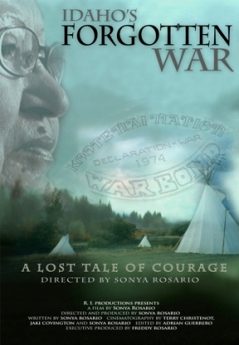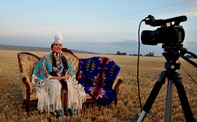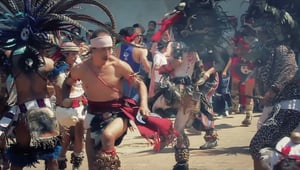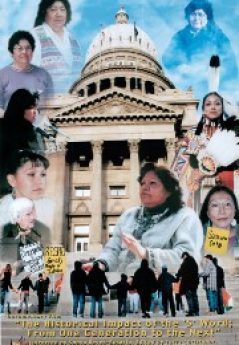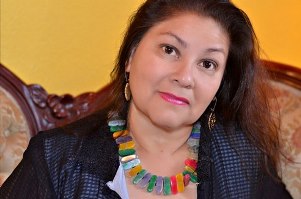
Interview Questions and Answers
How did you become a filmmaker; did you go to film school?
I picked up our family Panasonic camcorder after hearing the Idaho State Legislators, give a poor excuse as to why they did not agree with Tribes of Idaho on reasons to remove the word “squaw” from Idaho land places. I was encouraged by a few Native sisters to film the back stories of what this term has done historically to the First people of this Nation. Idaho’s landscape became my film school, I would stop by the side of the road and shoot the landscape and pull lampshades off for indoor lighting. My participants became my film crew! I picked what I had, a VHS camcorder and set off in the direction of the first reservation that I had relations with, Fort Hall Indian Reservation. I never looked back…was it easy? No, it was not, it was lonely, because of the distances I had to drive, most of the time alone. But after it was done and put together, I knew it was the beginning of something bigger than me, and bigger than Idaho.
Is there a film that you know you were meant to do?
Yes, it has to be, Idaho’s Forgotten War! I was told by many Native sisters throughout Idaho, about a woman named, Amy Trice, who declared a war on the United States government in 1974. I was too busy finishing up the “S” word, to remove the word squaw from Idaho land places, to really hear what they were sharing with me. But after meeting Amy and filming her story…I knew it was me, who was meant to film her story…I was and am blessed by this woman and her friendship. She changed my life, thinking, and I became the filmmaker, I was meant to become by simply meeting this incredible woman and be the one to share her story of courage and love for her people and commitment to her community; where she changed the landscape of poverty for so many generations in Bonners Ferry, Idaho. I believe EVERYONE should know this woman’s story and her devotion to make a change not only for the Kootenai people, but those who needed a second chance. When you are able to create this kind of film, you want more like them. Where you can make a difference in someone’s life.
What is the key component to the success of your film, ‘Sofa Diaries’?
That it’s a love story between mothers and daughters, filled with all its complications, it’s a passionate love story. After years of a bad and often cruel marriage, my mother Gloria, told me she was going to leave my father, after 36 years. Sitting on an old Victorian sofa, we both agreed to divorce an old way of thinking, and move forward. Traditionally, as Mexican women, we had accepted a way of thinking and behavior that no longer fit the life we wanted to live. The divorce was very ugly and painful. But in the end, we both learned more about ourselves and each other, than we realized. Years after she passed away, I fell into a deep a sadness and took that Victorian sofa on a road trip to discover the love, challenges, and stories between mothers and daughters and the ripple effect that it does leave behind on their families and communities. I did not have the perfect relationship with my mother, often filled with potholes, our relationship was as passionate as an Italian film! The day she died, I was at the airport, crying. I did not care who was looking at me, I did not care what others were thinking…I just cried, and cried. I simply knew at that moment, “I had really loved her, and I would not love like that again.” Hence the Sofa Diaries, women share their most intimate stories about women, like their mothers and daughters, who they have learned from and the kind of crazy love that comes from such relationships…at times, it’s really about the “ugly cry.”
Did you ever think your film would make Idaho history?
Well, not really. I did wonder why Amy was not in Idaho history books and why wasn’t there more coverage? I feel not everyone wants to address the past, especially when it comes to Native American history in Idaho. Native history is not pretty in this country, I believe that is why it’s left-out history books. I believe that Amy Trice, former Chair of the Kootenai Tribe of Idaho, deserves more than a movie, she deserves to be in history books in Idaho and the United States. I am very happy she is in the Idaho Historical Museum.
